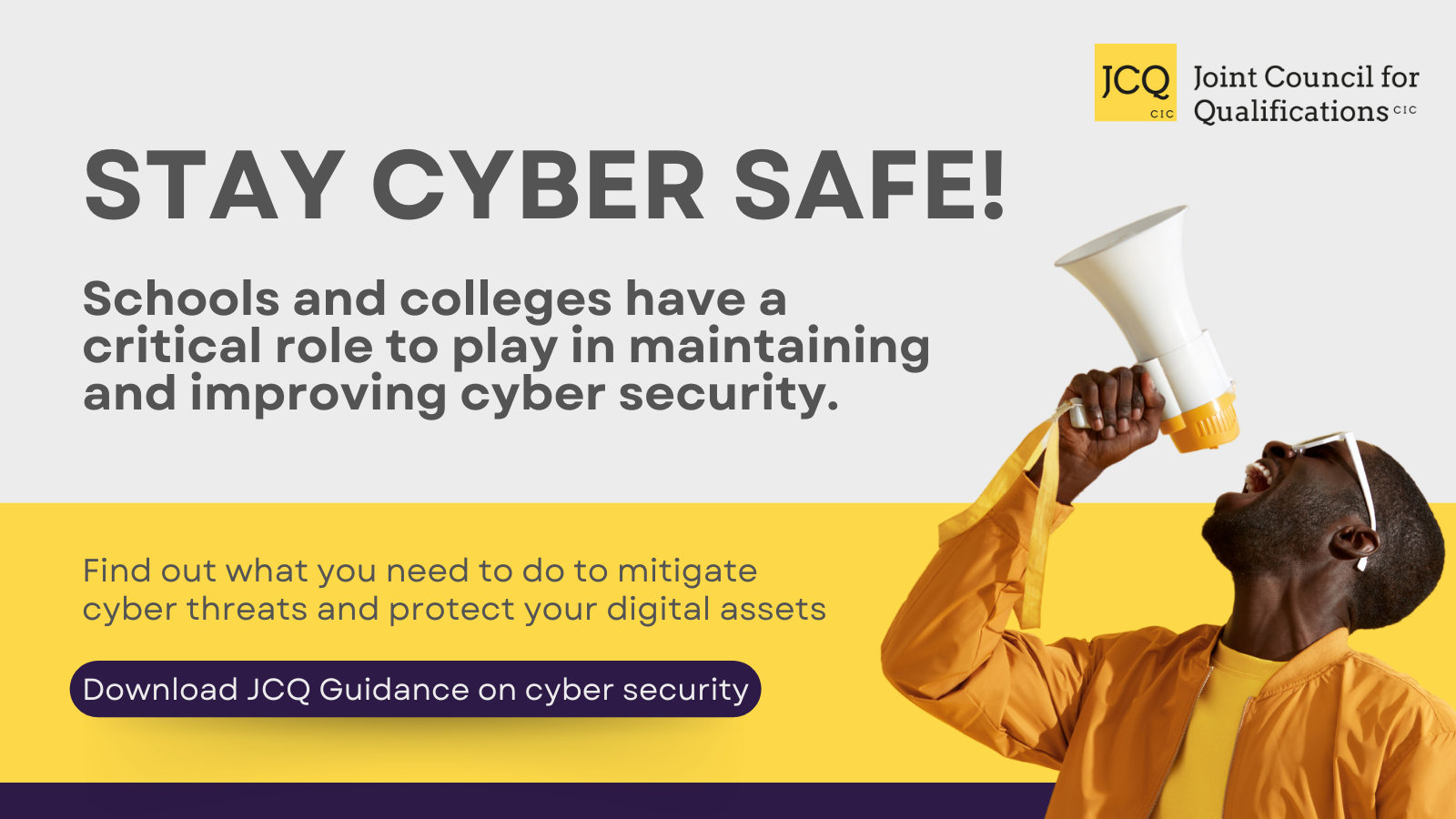With the summer exam series just a few weeks away; it’s vital that you and your colleagues have everything in place to protect your centre’s confidential information and data.
Here’s a few practical tips and reminders to help you plan and prepare for the weeks ahead – and to ensure the effective delivery of another successful exam series.
1. Make sure all your accounts are in order
It’s important that you access your awarding body systems and accounts in plenty of time to make sure that everything is tested and set up appropriately. Make sure all your permissions are correct, and that you delete any centre accounts that are no longer needed, for example if a colleague has left or changed role.
2. Set up appropriate levels of electronic access
Having access to an electronic account is like holding the keys to a safe. It’s important to make sure that everything is both secure and that the right level of access to important information is available when your centre needs it.
By providing appropriate levels of access to other members of your team, and through making sure they fully understand their responsibilities, you will streamline processes and help to protect the integrity of assessment materials.
3. Know the multi-factor authentication (MFA) process
Make sure you are familiar with the MFA process needed to access your awarding organisation accounts and systems. This will ensure confidential information never needs to be shared via unsecure channels.
Remember; awarding organisations will never ask you to share passwords or MFA codes over the phone or via email.
4. Protect the integrity of downloads
Exam papers and assessment materials will be available to download from your awarding organisation’s secure system 60 minutes before the start of the exam.
It’s important you ensure everything is in place to ensure the integrity and security of the electronic question paper during the downloading, printing and collating process.
5. Be alert to phishing!
Be wary of unsolicited or unexpected emails, messages or phone calls – particularly if they are asking for account credentials or personal information.
Never approve or authenticate a login request that you did not initiate, and do not click on suspicious links, download attachments, or scan QR codes from unknown sources.
You can find out further information and guidance on staying cyber safe here: JCQ’s guidance for centres on cyber security National Cyber Security Centre guidance for schools and colleges
You can also download our ‘Stay Cyber Safe’ poster for centres.



